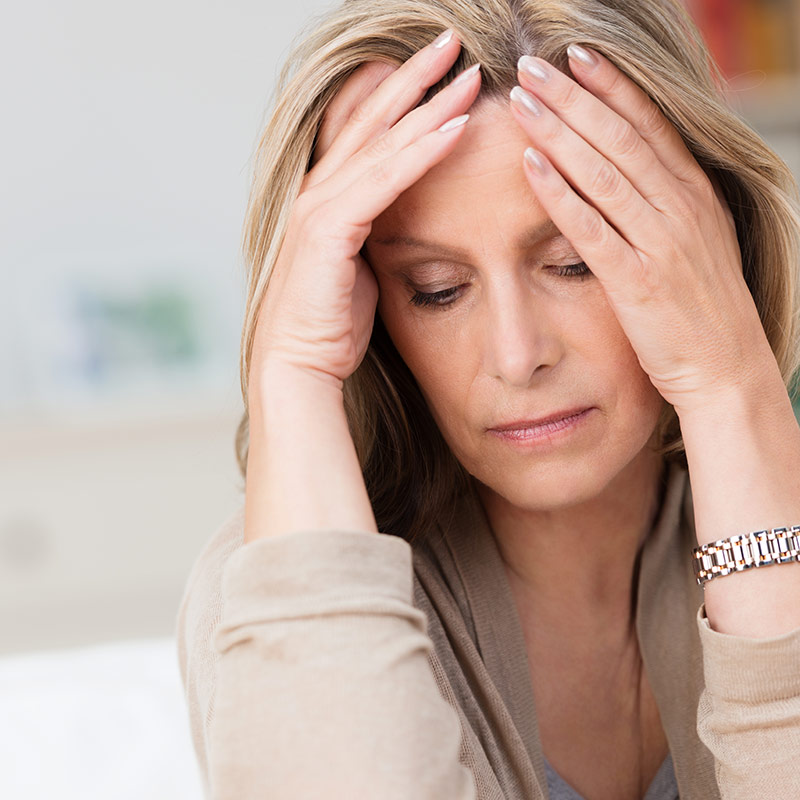Menopause Symptoms Background
The signs and symptoms of menopause are usually enough to for most women to determine they have begun going through the menopausal transition. We encourage women to have a simple blood test done which will check levels of follicle-stimulating hormone (FSH) and estrogen (estradiol).
As menopause occurs, FSH levels increase and estradiol levels decrease. Your doctor may also recommend a blood test to determine your level of thyroid-stimulating hormone, because hypothyroidism can cause symptoms similar to those of menopause.

Menopause Symptoms We Treat
Depression & Mood
Stress & Fatigue
Hot Flashes
Irregular Periods
Osteoporosis
Vaginal Dryness
Diminished Sex Drive
Hair Loss
Insomnia
Memory Loss
Skin Changes
Weight Gain
Menopause Symptoms by Age
Take the Next Step

